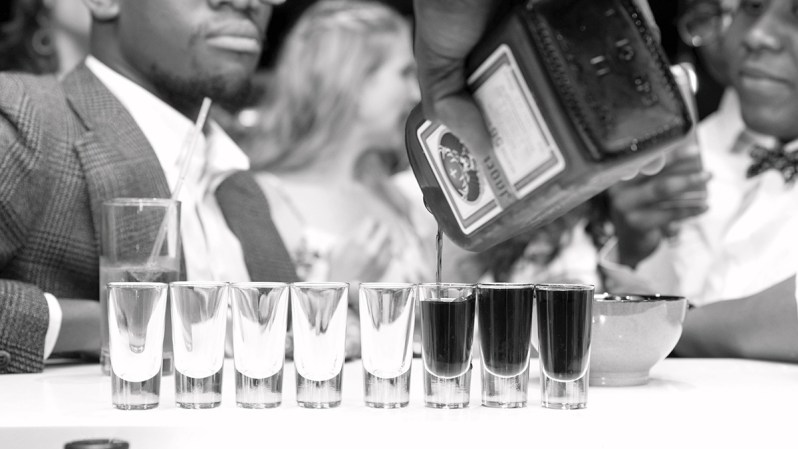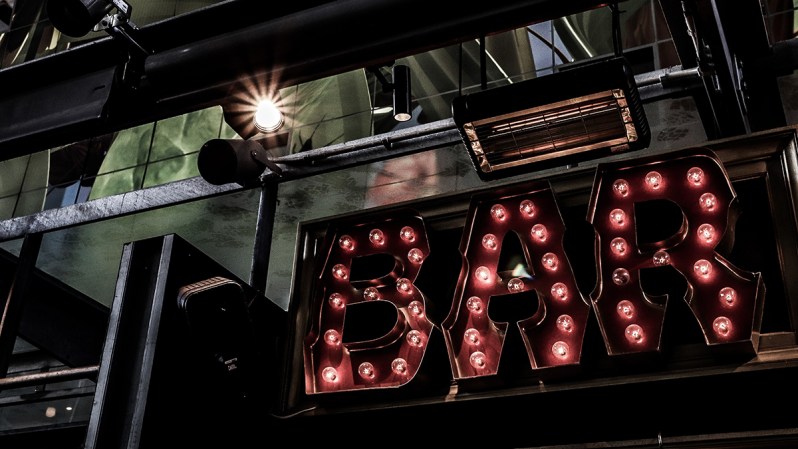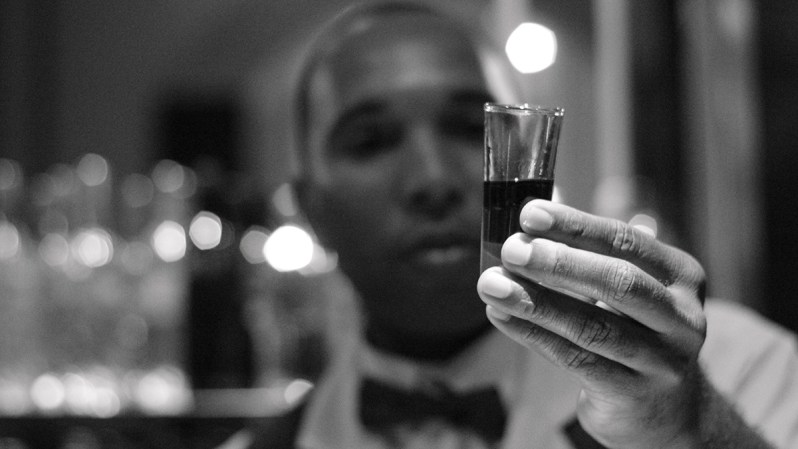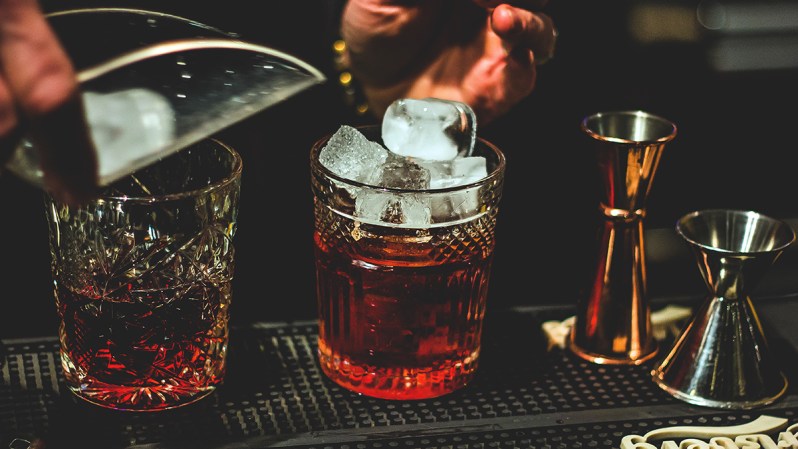My Kryptonite? I’m a generous drunk. I recently donated $250 to a great cause when I should have donated $50. I’ll usually pick up the tab if you and I are out imbibing late enough. And on more than one occasion, I’ve purchased a round of drinks for everyone in the bar.
The problem? I’m not made of money. In fact, I’m a writer —I’m barely made of flesh and bones (though at this point, my blood may be mostly whiskey, which is fine by me).

The act of buying a round feels great when you do it right. You’ve planned ahead and laid out a chunk of change to treat perfect strangers, causing everyone raises a glass in camaraderie. A few people saunter over and thank you. Perhaps you make a new drinking buddy for the rest of the evening. But, hoo-boy — when you do it wrong, you wonder why there’s no rent money the next day. That’s when you vow never to drink again.
Until the next time it’s time to celebrate a particularly marvelous Wednesday, of course.
Buying a round is a “terrifically rare” event, according to Andrew Friedman, founder and former owner of Liberty Bar in Seattle and the director of Industry Spirits, a hospitality consulting service. “It’s for special events, for sure.”
I disagree — buying for the house should become much more common, celebrating even life’s smallest victories (we get so few, really). The trick is not getting in over your head (or under the table).
Here are some common-sense dos and don’ts based on personal experience and tips from the experts: the bartenders who work to make your grandiose gesture come to life.
Do
Do assess the room and your wallet. Though I’ve bought rounds in a variety of venues, I prefer dive bars and roadhouses towards the end of the night, when stragglers are playing pool or crowding around the janky karaoke machine. It’s unexpected and affordable. If you’re making this move at a rooftop bar in the cool part of town on a Saturday night, be sure you can cover it.
Do restrict your offer to the immediate room. In venues with adjacent spaces, you don’t want to accidentally buy for the 500-capacity nightclub when you’re sitting at the 30-person side bar.

Do have a good reason if you’re in a crowded (or pricey) joint. “You’d better have just had a baby,” suggests Friedman. “Or better, twins.” (Though, what you’re doing out on the town instead of helping your significant other is another question). “Or make sure it’s your last day on Earth,” he adds. You’re going to be spending way more money than you think you are, is what he’s saying. Make it count.
Do chat with the bartender beforehand. Pamela Wiznitzer, president of the U.S. Bartenders Guild and the beverage director at New York City’s Seamstress Bar, notes it’s a bartender’s obligation to make sure you really are in a state to know what you’re offering. “We have to double and triple ask that that’s what you actually want to do,” she adds. It also gives you the opportunity to discuss price limits and possible bargains, like buying the whole bottle of whiskey rather than individual shots.

Do control what’s being poured. Wiznitzer says it’s totally okay to ask the bartender up front to pour from the well (rather than the top shelf). Leaving shot choices up to strangers could end up padding the bar tab significantly. I once opted for a shot of Hakushu 18-year ($50 per pour or so) when someone else was buying. I wasn’t trying to be greedy, it just looked tasty.
Do tip your bartender well. If it’s a slow night, tip the usual 15-20 percent of the total bill. “But if the bar is slammed,” says Wiznitzer, “and the bartender is taking the time to accommodate your big order, make sure to compensate them well for quickly helping you out when they’re in the weeds.”
Don’t
Don’t order Ramos Gin Fizzes for 20 people. “Don’t do something that’s going to be super complicated for the bartender,” says Wiznitzer. Shots of tequila, simple whisky highballs, or vodka sodas are key here. “It’s also fairly easy to batch something like an Old Fashioned,” says Wiznitzer. Stick to a single drink for the entire order (with the exceptions mentioned below).
Don’t force anyone to drink, or to drink what they don’t want. If someone is pacing themselves or drinking water, graciously accept that they’re not thirsty for a shot of Fireball. Even better, offer an alternative (soda, sparkling water, low-ABV cocktail, etc.) so they can consensually join in the fun.

Don’t expect anything in return from the recipients. It’s your celebration, your gift to the bar. While it’s polite for others to thank you for the gesture (or tip their drink in your direction), no one needs to kiss you, hug you, or offer stock tips in return. Don’t expect to get laid just because you laid out a few Hamiltons.
Don’t expect money back if you slap down a hundred, say or tell the bartender to spend up to a certain amount on the card. “If there’s money unspent, of course the bartender will return it to you,” says Friedman. “But that shouldn’t be your expectation.”
Don’t expect the bartender will automatically join you. They may not be allowed to drink on the job (or may not be drinking at all). “It’s a courtesy to offer a drink to the bartender,” says Wiznitzer. “If they can’t or won’t drink at the moment, you can ask, ‘Could I buy you a drink you could enjoy at the end of your shift?’”
Don’t front. “I remember a guy yelling, ‘Drinks are on me!’ as a joke,” says Friedman. “He wasn’t paying attention as people got their
Don’t return. “Never go back to any bar that let you actually do this,” jokes Friedman. “You were probably too drunk to make a good decision.” Thinking back on my house buys … probably yeah. I know at least one place I’ve not been back to. Ah, what the hell.


